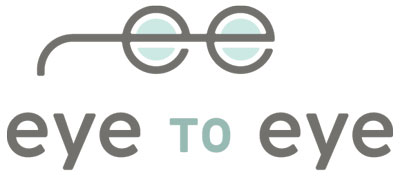Six Signs Your Child Needs Glasses
Does your child need glasses? Know the signs!
While most schools require students to take part in vision testing, many times kids' vision problems go undetected during school screenings. Just because a child can see 20/20 during the vision test, does not mean that their eyes work properly for an entire day of focusing in school. That’s why it’s important for parents to be aware of the warning signs that your child may be experiencing impaired vision.
1. Your Child is Struggling at School
If this is the case, an undetected vision problem might be to blame. A child who is unable to see the blackboard clearly or has a hard time focusing on the work at his or her desk will soon become frustrated.
2. Squinting
Children squint because it temporarily improves their vision. Children often squint their eyes in an attempt to see more clearly or as a reaction to strong, bright light. Squinting momentarily helps improve vision by slightly changing the shape of the eye. Sometimes, your child will not squint, but will turn their head to see better. They are essentially doing the same thing as squinting, but they are being sneaky about it. We have seen young children come in with a head turn or tilt that is actually the child just trying to see better.
3. Losing Place While Reading
Listening to your child read can reveal potential vision problems. Does your child have a hard time keeping his place while reading? Skipping lines or losing your place while reading can be a sign of a tracking problem. This is when the eye muscles do not work together and they do not track across the page at the same rate. This will make reading frustrating and will decrease comprehension, as the child gets lost in the story very easily.
4. Sitting too Close to the TV
Do you ever catch your child sitting abnormally close to the television? Have you ever caught your child with her iPad resting against her nose? Sitting very close to the television or lowering the head while reading or watching a tablet are often a signs of nearsightedness. Nearsighted children generally have clear vision at a close range and poor vision at a distance. Pulling the iPad or books closer can also be a sign of a focusing issue, which are on the rise with increased screen time at school and at home.
5. Rubbing the Eyes
Many young children rub their eyes when they are nearing bedtime. Allergies can also cause a child to frequently rub his eyes. However, rubbing the eyes is also a sign of eye fatigue and can be a sign of all types of vision problems. Astigmatism can also cause eye rubbing and excessive blinking in a child.
6. Frequent Headaches
Uncorrected farsighted children often have frontal headaches or brow aches. This is a result of the child attempting to compensate by exerting extra effort to clear their blurry vision.
If you notice any of these warning signs in your child, it's a good idea to schedule an appointment for a full eye exam.



